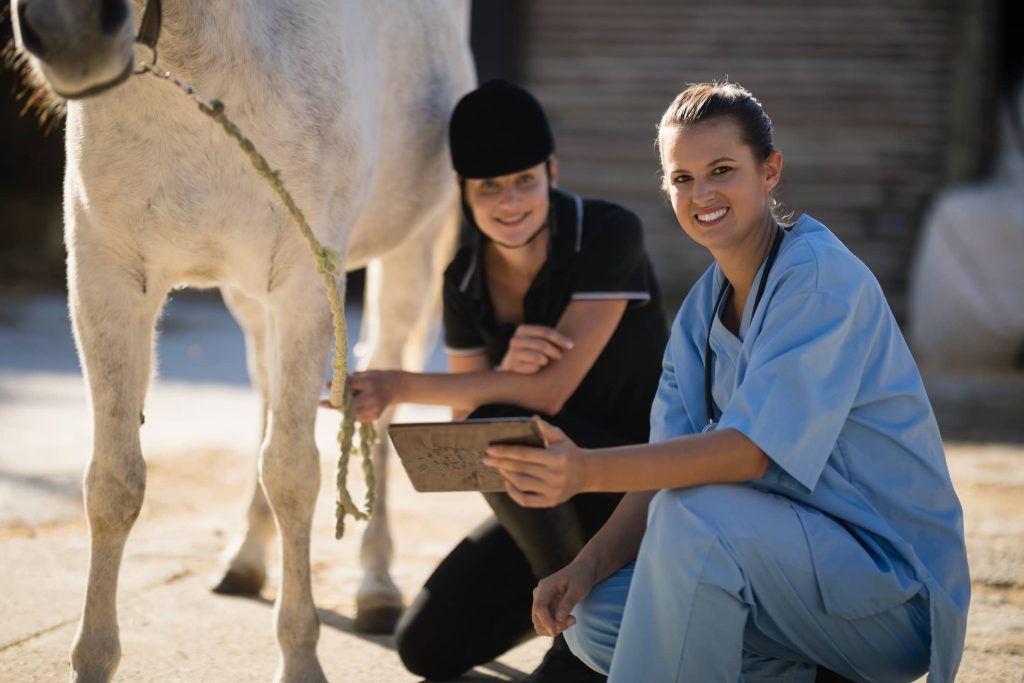
Owning and caring for horses is a rewarding but demanding responsibility. Central to the well-being of these majestic animals is the relationship with a knowledgeable and trustworthy equine veterinarian. Choosing the right horse vet is a crucial decision that can significantly impact the health and happiness of your horses. In this comprehensive guide, we will explore the multifaceted aspects of selecting, building a relationship with, and effectively working with horse veterinarians. From understanding the unique health needs of horses to fostering open communication, this guide aims to empower horse owners to make informed decisions for the optimal care of their equine companions.
Understanding the Unique Health Needs of Horses
The Importance of Equine Veterinary Care
Horses, like any other animals, require regular veterinary care to maintain their health and well-being. This section will delve into the unique health needs of horses, emphasizing why preventive and proactive veterinary care is essential for preventing and addressing various health issues.
The Role of Preventive Medicine in Equine Health
Explore the significance of preventive medicine in equine health. Discuss the key components of preventive care, including vaccinations, deworming, dental care, and nutrition. Highlight the role of horse owners in collaborating with veterinarians to create personalized preventive healthcare plans for their horses.
Choosing the Right Equine Veterinarian
Qualifications and Credentials
When selecting an equine veterinarian, it’s crucial to consider their qualifications and credentials. This section will provide guidance on what qualifications to look for, such as veterinary degrees, specialized equine certifications, and state licensing. Understanding the importance of a vet’s education and ongoing professional development ensures that horse owners choose a highly competent healthcare provider for their animals.
Experience with Specific Breeds and Disciplines
Different horse breeds and disciplines often come with unique health considerations. In this section, we will explore the advantages of choosing a veterinarian with experience in working with specific breeds or disciplines relevant to the horse owner’s needs. A vet familiar with the nuances of a particular breed or discipline can offer more targeted and effective care.
Availability and Emergency Services
Horse health emergencies can happen at any time, requiring immediate attention. This section will discuss the importance of a veterinarian’s availability, including the provision of 24/7 emergency services. Tips on finding a vet who responds quickly and efficiently to emergencies, and how to establish a reliable communication channel for urgent situations, will be explored.
Building a Relationship with Your Equine Veterinarian
Regular Check-ups and Wellness Programs
Establishing a routine for regular veterinary check-ups is fundamental to equine health. This section will outline the benefits of regular check-ups, emphasizing the early detection and prevention of potential health issues. Additionally, we will explore the development of personalized wellness programs that encompass nutrition, exercise, and preventive healthcare measures tailored to individual horses.
Communication and Collaboration
Effective communication between horse owners and their veterinarians is key to successful healthcare management. This section will provide insights into fostering open communication, ensuring that horse owners feel comfortable discussing their concerns and veterinarians can convey information clearly. The guide will also delve into the collaborative aspect of the owner-vet relationship, where decisions are made together in the best interest of the horse.
Integrating Holistic and Alternative Therapies
Exploring Holistic Approaches to Equine Health
Holistic approaches to equine health consider the interconnectedness of various factors, including physical, emotional, and environmental elements. In this section, we will explore alternative therapies such as acupuncture, chiropractic care, and herbal medicine. Understanding how these holistic modalities can complement traditional veterinary treatments provides horse owners with a broader perspective on healthcare options for their horses.
Collaboration Between Veterinarians and Alternative Practitioners
While traditional veterinary care is essential, collaborating with alternative practitioners can offer a holistic approach to equine health. This section will discuss scenarios where both modalities can work together synergistically to enhance the overall health and performance of horses. Case studies and examples will illustrate the benefits of an integrative healthcare approach.
Staying Informed about Advances in Equine Medicine
The Evolving Landscape of Equine Veterinary Medicine
The field of equine veterinary medicine is dynamic, with constant advancements in treatments, diagnostics, and technologies. In this section, we will explore recent developments in equine medicine, emphasizing the importance of staying informed about new practices. Resources, such as workshops, seminars, and online courses, will be provided to help horse owners stay educated and proactive in their approach to equine healthcare.
Continuing Education for Horse Owners
Continuing education is not exclusive to veterinarians; horse owners also play a crucial role in staying informed about equine health. This section will offer recommendations for horse owners to expand their knowledge base. Topics may include understanding common horse ailments, recognizing signs of distress, and learning basic first aid.
Conclusion
In conclusion, the journey of choosing and working with horse vets is a pivotal aspect of responsible horse ownership. By understanding the unique health needs of horses, carefully selecting qualified veterinarians, building strong relationships through effective communication, and exploring holistic healthcare options, horse owners can ensure the well-being of their equine companions. Staying informed about advances in equine medicine further empowers horse owners to actively participate in the healthcare decisions for their beloved animals. This comprehensive guide aims to provide the necessary insights and resources for horse owners to navigate the complex yet rewarding world of equine healthcare.
